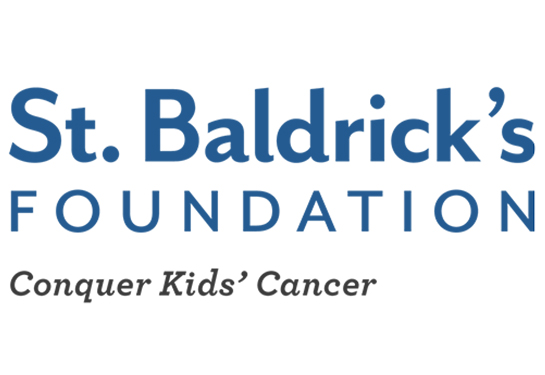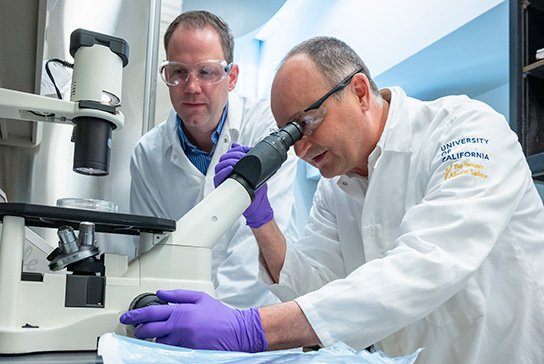UC Davis Health to co-lead $16 million study examining AI’s role in reading mammograms
Nationwide research seeks to examine impact of AI on mammogram accuracy and patient experience
October is Breast Cancer Awareness Month. Women over 40 are encouraged to get annual mammograms because early detection is key to beating breast cancer. Artificial Intelligence (AI) is used in many health settings to help determine the results of breast cancer screenings, but is it effective?
UC Davis Health will help answer that question. It is co-leading a newly funded national clinical trial to evaluate whether AI can help radiologists interpret screening mammograms more accurately.
The goal is to improve breast cancer detection and reduce unnecessary callbacks and anxiety for patients.
The study, known as the PRISM trial (Pragmatic Randomized Trial of Artificial Intelligence for Screening Mammography), is supported by a $16 million award from the Patient-Centered Outcomes Research Institute (PCORI).
The study will involve hundreds of thousands of mammograms interpreted at academic medical centers and breast imaging facilities in California, Florida, Massachusetts, Washington and Wisconsin.
“PRISM is the first large-scale randomized trial in the U.S. to evaluate the effectiveness of AI in breast cancer screening interpretation,” said Diana Miglioretti, dual principal investigator and lead of the study’s data coordinating center, which will be based at UC Davis Health.

Miglioretti is professor and division chief of Biostatistics at the UC Davis Department of Public Health Sciences and co-leads the Population Sciences and Cancer Control program at UC Davis Comprehensive Cancer Center.
“We’re rigorously evaluating whether AI-assisted interpretation improves screening outcomes,” she said. “The goal is not to replace radiologists with AI but to see how effective AI could be as a co-pilot in reading mammography.”
PRISM trial’s results will be put to immediate use
Breast cancer remains the second leading cause of cancer death among women in the U.S. While routine mammography screening reduces mortality through early detection, it also has drawbacks — including false positives that can lead to unnecessary testing, anxiety and costs. Mammography can sometimes miss cancer, too.
“The trial’s results will inform clinical practice, coverage decisions, technology adoption and how we communicate with patients about AI in screening,” Miglioretti explained. “There’s a lot of optimism that AI will improve care, but very few randomized trials have measured its real-world effectiveness.”
Study is a collaborative approach to AI research
The PRISM trial was developed in close partnership with patient advocates, clinicians, health system leaders and policymakers.
The trial brings together seven leading academic medical centers. UCLA will serve as the administrative coordinating site. Other sites include UC San Diego, Boston Medical Center, University of Miami, University of Washington and University of Wisconsin.
Each participating facility will continue routine screening as usual, with no changes to the patient experience. Mammograms will be randomly assigned to be interpreted either by a radiologist on their own or with assistance from an AI support tool. In all cases, a radiologist reads the exam and will determine the results of the mammogram.
The role of UC Davis Health is not to enroll patients in the study but to collect the data from the participating facilities and conduct the analyses for the study.
In addition to analyzing cancer detection and recall rates, the study will include focus groups and surveys to capture how patients and radiologists perceive and trust AI-assisted care.
“This study is our opportunity to generate independent, trustworthy evidence — with the patient perspective front and center,” Miglioretti said.
UC Davis Comprehensive Cancer Center
UC Davis Comprehensive Cancer Center is the only National Cancer Institute-designated center serving the Central Valley and inland Northern California, a region of more than 6 million people. Its specialists provide compassionate, comprehensive care for more than 100,000 adults and children every year and access to more than 200 active clinical trials at any given time. Its innovative research program engages more than 240 scientists at UC Davis who work collaboratively to advance discovery of new tools to diagnose and treat cancer. Patients have access to leading-edge care, including immunotherapy and other targeted treatments. Its Office of Community Outreach and Engagement addresses disparities in cancer outcomes across diverse populations, and the cancer center provides comprehensive education and workforce development programs for the next generation of clinicians and scientists. For more information, visit cancer.ucdavis.edu.





